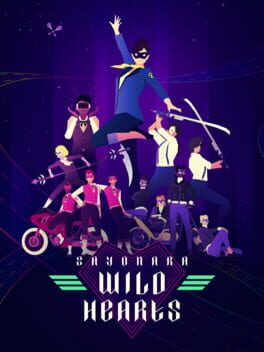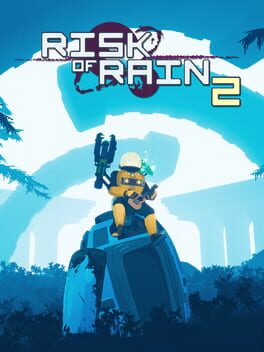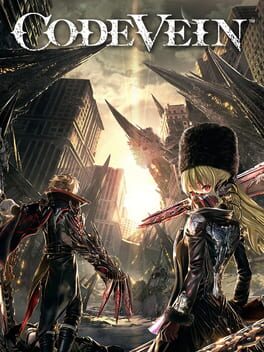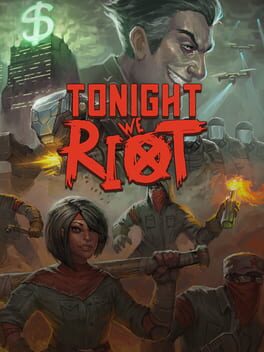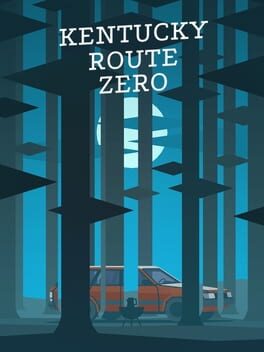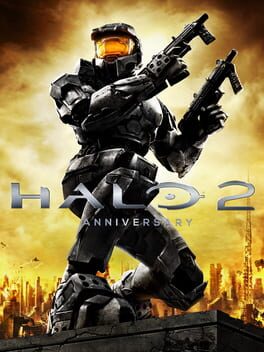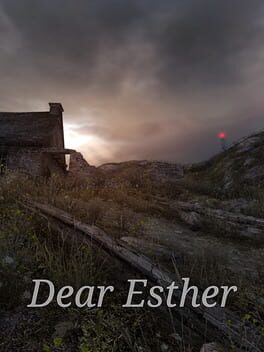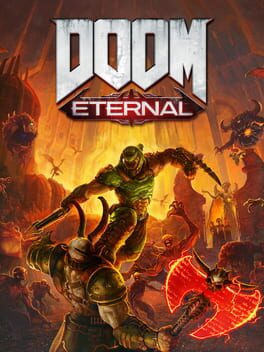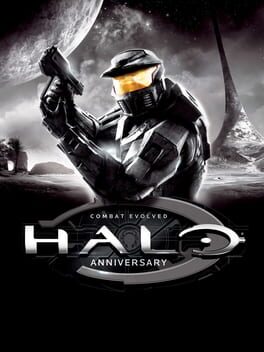kosmzone
2019
2019
So much of action gaming is about power accumulation and Risk of Rain 2 is about pushing that conceit to its extreme by only placing one limit on your potential: how much nonsense your machine can handle before it crashes. It's compulsively compelling for a time but is let down by an optional final boss that encourages overly specific builds and the lack of a bookmark feature that makes doing an endless run too much of a commitment.
2020
2019
2020
A deeply personal game about a specific experience in a specific time-and-place that acutely captures how earthshattering and apocalyptic it can feel to discover and express yourself while also portraying the comfort and coziness of friendship and community. The central mechanic of erasing a diary is fraught with pain and the game confronts that directly and pointedly. Being cis, I'm not remotely qualified to speak to the quality of its representation, but for what it's worth, I felt that it came from a place of authenticity and care. At the very least, I can definitively say it deserves to be far less underlooked.
(Also, 'Where Are You!?' is one of 2mello's best tracks. Fight me)
(Also, 'Where Are You!?' is one of 2mello's best tracks. Fight me)
2019
2020
It takes a bit to become accustomed to the teamwork-based beat-em-up gameplay, but once I did, it was both a neat gimmick and a fitting thematic expression of this game's aspirations to be a breezy, lighthearted polemic. The humor is largely based on the player being an extremely online leftist, and I must shamefully admit that I am an easy mark for that. Not a revolutionary experience itself but a refreshing break from the sea of mainstream games that are just as unapologetically right-wing.
2013
Evocative and contemplative about the decay and erosion of Americana and general happiness at the hands of capital, but only willing to present a single mood through the entirety of its ten hours. While depressing whismy is indeed a good mood for a magical realist story to explore, it just wore a bit thin after a while, aside from its beautifully affirming yet haunting final scene.
2018
A soft and sharp showcase on the ups-and-downs and ebbs-and-flows of life conveyed through gorgeous digital art, beautiful analog instrumentation, and just enough interactivity to emotionally involve the player in its narrative beats. An excellent example of the strengths of minimalism in presentation and design.
2014
The Bungie Halo games I've played are pretty even in terms of quality, but this is the one that's both the closest and farthest from achieving excellence. The first half had me giddy as it bounced from a bombastic defense of Earth as the Chief and pseudo-stealth Elite special ops team mission, which provided the pacing a solid sense of flow and variety. However, when the plotlines converged they became indistinct and I finally disconnected from the convoluted story of these games entirely. So it winds up being average in the end.
Completed on August 5th, 2020
Score: 3/5
Completed on August 5th, 2020
Score: 3/5
2012
The caves in the definitive edition are unreasonably pretty running in 4K. Unfortunately, while I am an advocate for games with no fail-state and minimal mechanics, I found Dear Esther to have far less to sink my teeth in than more recent entries in the Walking Sim genre such as Firewatch and Tacoma. While I'm sure if I pieced together the narrative it would be compelling, nothing in my playthrough instilled a desire to do so, which isn't exactly a great mark of praise for a game with little going on besides an appropriately dreary sense of atmosphere.
Completed on May, 5th 2020
Completed on May, 5th 2020
2020
The combat in this game just lights up my brain with the feel-good chemicals like nothing else. The balance of zipping around the map, unloading the considerably large arsenal to dish out damage, regaining health, and armoring up while constantly updating and adjusting my tactical plan of execution on a second-by-second basis is sublime. I have a laundry list of problems with the flabby experience Id Software built out of that combat, but it ultimately does little to obstruct the high that playing this game at its best gives me.
2016
Presents a horror in the suggestion that the familiar, comfortable, and mundane are in fact hostile and indifferent. The fact that 'Anatomy' accomplishes this through having the player navigate a house in the dark is a testament to how fear is best fostered through understatement but also the power that games have to convey emotions through simply embodying a space.
2015
Art that does not wish to be gazed upon, or at least bears the pretense as such, is always fascinating. The purpose of this interrogation of the audience in 'The Beginner's Guide' is to disrupts a common way of thinking and talking about art, and indeed games in specific. Whereas Davey Wreden's previous title 'The Stanlely Parable' was concerned with the structures of games, 'Beginner's Guide' is concerned with the function that creating and playing games serves in our lives and how that is reflected within our interactions with other humans beings, and delivers these concerns through a compelling collection of experimental levels and a deeply personal and well-performed narrative.
The game that started it all. Well, sort of. I'm not a games historian and as such, I find it silly to rate games on their historical importance, but on that front, I'd say that any credit Combat Evolved deserves for revamping the console shooter, it deserves equally as much derision for its cowardly assassination of the weapon wheel. Still, only carrying two weapons does speak to this game's general ethos of simplicity (aside from the expanded universe lore, and the garish and thankfully optional visual overhaul found in Anniversary), which serves to both the benefit and detriment of the game.
Continuing my journey through the Master Chief Collection, I found many of the problems that I had with Reach, from the lack of proper context and humanity to a core structure that merely passes by on good game feel. However, like Reach, there are some strikingly standout moments, from the whole of The Silent Cartographer to the reveal of the Flood to the final escape sequence in the Warthog. As unqualified as I am to speak to specifics about Halo's place in history, it's presence undeniably looms large, and it stands as a solid, decent time twenty years later, and that's because Bungie knows how to serve the meat and potatoes.
Score: 3/5
Continuing my journey through the Master Chief Collection, I found many of the problems that I had with Reach, from the lack of proper context and humanity to a core structure that merely passes by on good game feel. However, like Reach, there are some strikingly standout moments, from the whole of The Silent Cartographer to the reveal of the Flood to the final escape sequence in the Warthog. As unqualified as I am to speak to specifics about Halo's place in history, it's presence undeniably looms large, and it stands as a solid, decent time twenty years later, and that's because Bungie knows how to serve the meat and potatoes.
Score: 3/5
